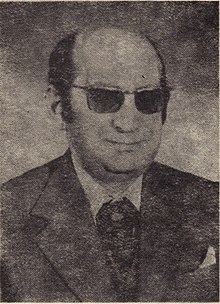Zigu Ornea | |
|---|---|
 | |
| Born | August 28, 1930 |
| Died | November 14, 2001 (aged 71) |
| Other names | Zigu Orenstein, Zigu Ornstein |
| Academic background | |
| Influences | Karl Kautsky, Eugen Lovinescu, Tudor Vianu, Ștefan Zeletin |
| Academic work | |
| Era | 20th century |
| School or tradition | Marxist, Classical liberal, Romanian liberal |
| Main interests | Historiography, literary criticism, Romanian cultural history, sociology |
| Notable works | Junimismul (1966) Sămănătorismul (1970) Poporanismul (1972) Junimea și junimismul (1975) Curentul cultural de la Contemporanul (1977) Tradiționalism și modernitate în deceniul al treilea (1980) Anii treizeci. Extrema dreaptă românească (1995) |
| Influenced | Sorin Alexandrescu, Marta Petreu, Ana Selejan, Florin Țurcanu |
Zigu Ornea (Romanian: [ˈziɡu ˈorne̯a]; born Zigu Orenstein[1] or Ornstein[2] and commonly known as Z. Ornea; August 28, 1930 – November 14, 2001) was a Romanian cultural historian, literary critic, biographer and book publisher. The author of several monographs focusing on the evolution of Romanian culture in general and Romanian literature in particular, he chronicled the debates and meeting points between conservatism, nationalism, and socialism. His main early works are primarily dedicated to the 19th and early 20th century cultural and political currents heralded by Junimea, by the left-wing ideologues of Poporanism and by the Sămănătorul circle, followed independently or in relation to one another. Written as expansions of this study were Ornea's biographical essays on some of the period's leading theorists: Titu Maiorescu, Constantin Dobrogeanu-Gherea and Constantin Stere.
Ornea, who spent much of his career under the communist regime, began by following a dissenting form of Marxism, objecting to the official censorship of writers viewed as "reactionary" and later to the emerging forms of national communism. Noted for his defense of Western culture in front of the isolationism advocated under the rule of Nicolae Ceaușescu, the researcher also acquired a familiarity with the various aspects socialist history which led him to abandon Marxist ideology. After the Revolution of 1989, he dedicated his final and groundbreaking study to exposing the cultural connections of far right and fascism in interwar Greater Romania.
In parallel to his work in the study of Romanian cultural history, Zigu Ornea was a noted publisher, who held positions of leadership at Editura Meridiane and Editura Minerva, before becoming founder and director of Editura Hasefer. He had a vast activity as a literary chronicler and essayist, holding permanent columns in România Literară and Dilema Veche magazines during the final decades of his life. Zigu Ornea was the father of mathematician and essayist Liviu Ornea.
- ^ (in Romanian) Andrei Vasilescu, "La ceas aniversar – Cornel Popa la 75 de ani: 'Am refuzat numeroase demnități pentru a rămâne credincios logicii și filosofiei analitice.' " Archived November 27, 2009, at the Wayback Machine, in Revista de Filosofie Analitică, Vol. II, Nr. 1, January–June 2008, p. 85.
- ^ George Ardeleanu, "Lecturi distorsionate, victime colaterale", in Observator Cultural, Nr. 363, March 2007.